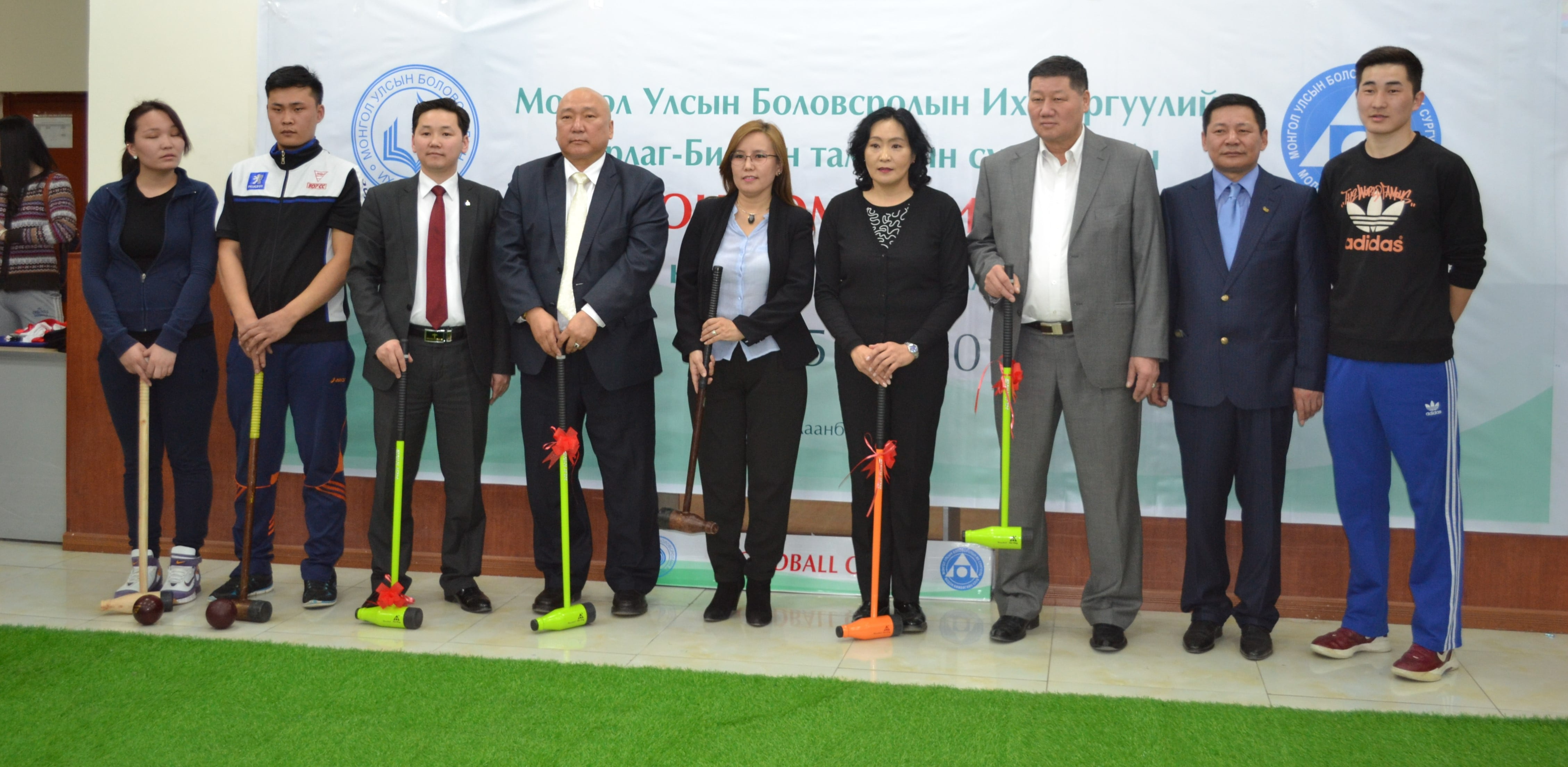 Woodball is one of the youngest sports, having originated in Taiwan in 1990. It began to develop rapidly in Mongolia in 2002, with the official formation of the Mongolian Woodball Federation (MWF) in 2003. The first "National Championship" was held in 2005, forming the National Team, which started participating in international and Asian competitions. Since 2009, woodball has been included in the University Games, becoming a required sport for students in higher education institutions.
Woodball is one of the youngest sports, having originated in Taiwan in 1990. It began to develop rapidly in Mongolia in 2002, with the official formation of the Mongolian Woodball Federation (MWF) in 2003. The first "National Championship" was held in 2005, forming the National Team, which started participating in international and Asian competitions. Since 2009, woodball has been included in the University Games, becoming a required sport for students in higher education institutions.
During this period, MSUE's faculty and students have dedicated significant time and resources to successfully practice woodball. International Master D. Batmyagmar (SFT student), Sports Master S. Battsooj (SFT instructor), 1st class athletes B. Tserenbat (SFT student), G. Bayasgalan (SFT student), M. Bolor-Erdene (SFT student), and many others have emerged. Numerous students have excelled in this sport, winning multiple gold, silver, and bronze medals in national and international competitions. MSUE's team won gold medals in 2009 and 2011 and a bronze medal in 2013 in university-level team competitions.
To sustain this success, the Woodball Club was officially established in 2014 to promote the sport among MSUE's faculty and students, providing a conducive environment for them to spend their free time productively.
Club Goal:
The primary goal is to form the MSUE student national team in woodball, a sport included in the University Games. To achieve this:
- Promote and introduce the sport of woodball to MSUE students, and establish a club and group for enthusiasts.
- Develop training paths, fields, and equipment that meet the standards of woodball.
- Establish regular training times for the woodball club.
- Organize the annual MSUE Woodball Championship for teachers and students as a tradition.
Club Results:
- By establishing the MSUE Woodball Club and training athletes, the university has formed its own team to participate in national and inter-university championships.
- Successful athletes from the team can be included in the national team to participate in international and Asian, World Championships.
- Make woodball training evaluative and use the revenue to improve sports equipment, support and encourage top athletes to participate in international competitions, and create outdoor training grounds for summer practices.
Club Environment and Human Resources:
The training of the club is managed by the Director of SFT, Master of Sports S. Battsooj. The club invites international-level referees and coaches to give lectures to the participating teachers and students. They also arrange friendly matches with other universities and invite top and experienced graduates to conduct training. During winter, training is held indoors on artificial turf, focusing on short-distance practice, goal, and ball handling techniques, along with theoretical and rule-based lessons. In warmer seasons, training is conducted outdoors, focusing on long-distance strokes, and adapting to the terrain and obstacles. Compared to other sports, woodball requires relatively minimal environmental conditions.

